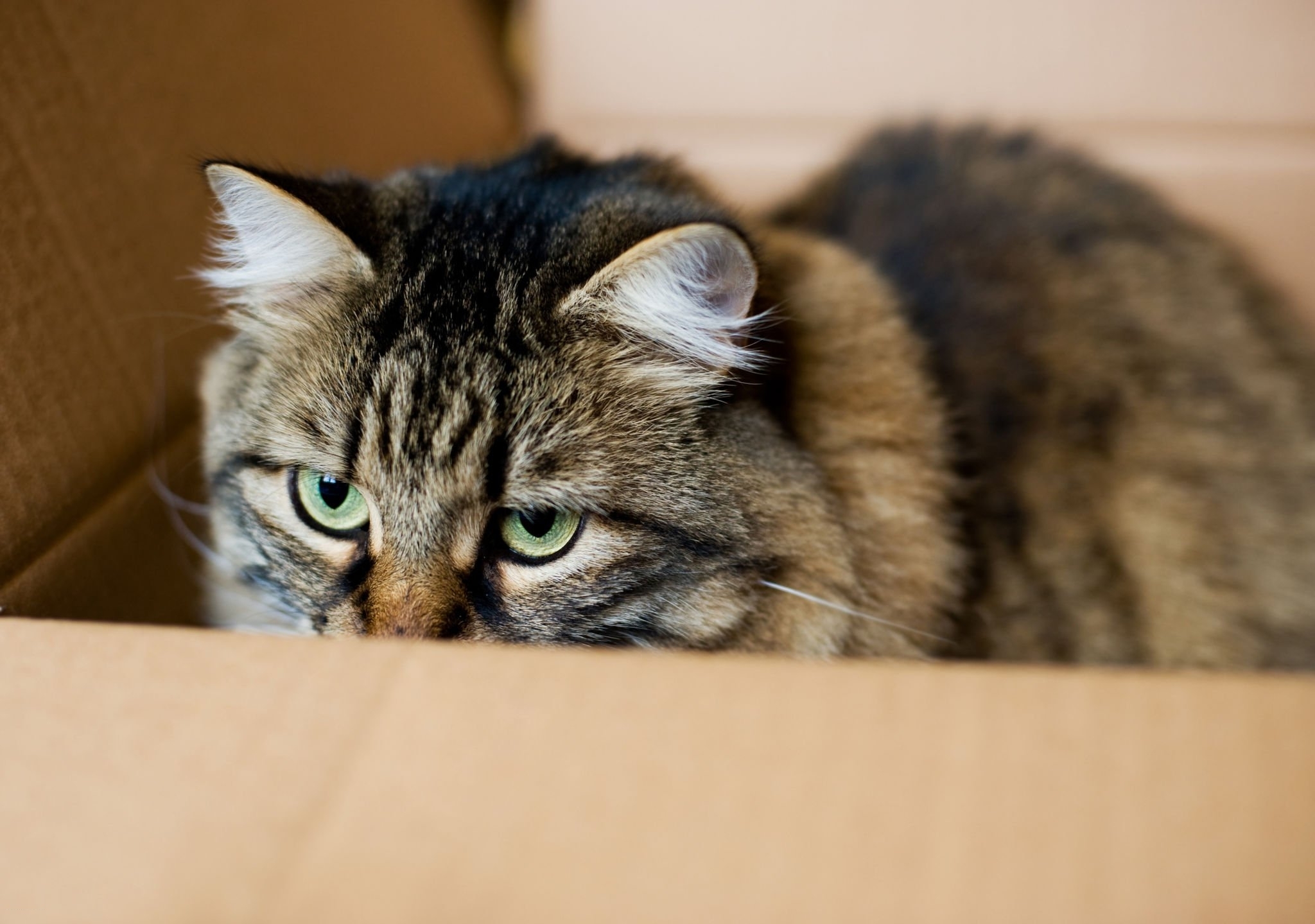
If your cat is acting stressed, it’s important to figure out what’s going on as soon as possible. Although stress can affect all cats, some are more prone to it than others. Here are some signs that might be indicative of stress in your feline friend:
Hiding
Hiding is a common cat behavior. It’s an instinctive way to protect their territory and can be indicative of stress or illness. If your cat is hiding more than usual, it could be a sign that something isn’t right with them.
If you see your kitty hunkering down in the corner and refusing to come out (or even worse yet not coming out at all), this could mean that they’re feeling ill or stressed—and if you’re concerned about this behavior, seek help from a professional pet health care provider trained in feline health care issues like parasites or fleas!
Inappropriate elimination (peeing or pooping in a place they shouldn’t, like the bed)
If your cat is pooping or peeing in places where it shouldn’t be, this could be a sign of stress. It’s not uncommon for cats to mark their territory with urine and feces, but if you notice that the areas around their litter boxes are being targeted by the cat more often than usual, then there’s something going on.
In some cases, this could mean that your cat is stressed out because it feels threatened by another animal (or human) in its home or neighborhood. In other cases it may be related to territorial issues—your pet might feel threatened by another family member whose smell lingers around after they walk through an open door near its litter box area.
Overgrooming (which can lead to bald spots or skin irritations)
Many people are familiar with the term “stress” and how it can affect their lives. Stress is defined as an overuse of adrenaline in the body, which leads to increased heart rate, blood pressure, and other symptoms that can make you feel anxious or upset.
It’s often thought that stress comes from external factors—such as work deadlines or relationship problems—but there are also internal sources of stress that may not be so obvious at first glance: cats exposed to certain types of the environment may suffer from chronic anxiety or boredom due to lack of stimulation (or even just because they’re bored). Overgrooming (which can lead to bald spots or skin irritations) is one such symptom caused by boredom-induced stress in cats who aren’t given enough opportunity for exercise; this condition could also be treated by changing your cat’s environment so he has more ways to enjoy himself!
Changes in sleep patterns
Stress can make a cat sleep more or less than normal. Cats usually need about 12 hours of sleep per day, but some cats will also nap during the day and/or at night, depending on their personalities and circumstances. It’s not unusual for a stressed-out domestic cat to have periods where they are wide awake all day long. If this happens frequently enough that it causes stress for your pet, you may want to see a vet who specializes in animal behavior management so they can figure out what is causing your kitty’s behavior changes—and then recommend ways to help him relax again!
Eating less
- If your cat is eating less, it could be a sign of stress.
- Stress can cause a cat to lose their appetite and stop eating altogether.
It’s important to figure out why your cat is not eating by taking them to the vet if they haven’t been eating regularly or have gained weight since the last time you took them in for a checkup.*
If your cat is acting stressed, you should figure out what’s going on as soon as possible to help them feel better
Stress can be caused by anything from a new pet to a move in the house, so you must take note of any changes in their behavior and figure out why they’re feeling this way.
If your cat starts exhibiting signs of anxiety or fearfulness around other animals (such as dogs), then it might be time for them to start seeing a vet about their stress issues. Your vet may prescribe medication if necessary so that your cat will feel more comfortable around his peers and not exhibit these behaviors too often; however, this medication should only be used when necessary because side effects could include drowsiness or even seizures!
Conclusion
If your cat is acting stressed, you should figure out what’s going on as soon as possible to help them feel better. Stress in cats can be caused by many different things (like a change in routine or the loss of a loved one), so it’s important not just to treat the symptoms but also to address the underlying cause if possible. You might have to make some changes for your pet to feel more relaxed, like rearranging their furniture or giving them time alone when they’re feeling anxious—just keep in mind that this could take some time before they stop worrying about what’s happening around them!



